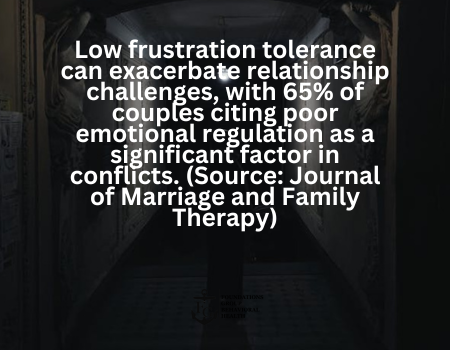Frustration is a universal experience. Whether it stems from minor inconveniences like waiting in traffic or more significant challenges such as navigating personal setbacks, how we handle frustration significantly impacts our emotional well-being. For some, frustration can escalate into overwhelming emotions, making it difficult to think clearly or respond constructively. Learning to build frustration tolerance is a critical skill for managing stress, improving relationships, and enhancing overall mental health.
At Foundations Group Behavioral Health, we specialize in helping individuals develop the tools they need to manage frustration and other emotional challenges effectively. Through programs like Psychiatric Day Treatment, Half-Day Treatment Programs, and Outpatient Mental Health Programs, we offer comprehensive support for building resilience and fostering personal growth.
What is Frustration Tolerance?
Frustration tolerance is the ability to manage and cope with challenging or uncomfortable situations without becoming excessively upset or reactive. It reflects emotional resilience—the capacity to maintain composure, focus, and problem-solving abilities even when things don’t go as planned.
Signs of Low Frustration Tolerance
- Feeling easily overwhelmed by minor setbacks.
- Frequently losing patience or experiencing outbursts of anger.
- Avoiding challenging tasks or situations.
- Struggling to adapt to unexpected changes.
- Experiencing heightened anxiety or depressive symptoms when faced with obstacles.
Why is Frustration Tolerance Important?
Frustration tolerance plays a vital role in emotional and mental health, influencing various aspects of life:
- Enhanced Mental Health
Low frustration tolerance is often linked to mental health issues like anxiety and depression. By developing this skill, individuals can reduce emotional distress and better manage symptoms of these disorders. - Stronger Relationships
Frustration often leads to conflicts in personal and professional relationships. Building tolerance helps individuals communicate effectively and maintain harmony in their interactions. - Improved Productivity and Problem-Solving
When frustration is managed constructively, individuals can remain focused and productive even in challenging situations. This skill enhances critical thinking and decision-making abilities. - Greater Resilience
Life is filled with uncertainties and setbacks. A high level of frustration tolerance equips individuals to navigate these challenges with confidence and adaptability.
How Frustration Impacts Mental Health
Frustration, when unmanaged, can lead to a cascade of emotional and behavioral challenges. For example:
- Anxiety: Persistent frustration can heighten feelings of worry and fear, contributing to generalized anxiety disorder.
- Depression: Chronic frustration, especially when tied to feelings of helplessness or failure, can exacerbate depressive symptoms.
- Anger Issues: Difficulty managing frustration often results in frequent or intense anger, which can harm relationships and overall well-being.
Programs like an Anxiety Treatment Program or a Depressive Disorder Treatment Program can help individuals address these underlying mental health concerns while building frustration tolerance.
Strategies for Building Frustration Tolerance
Building frustration tolerance requires consistent effort and a willingness to change thought patterns and behaviors. Below are proven strategies to help you develop this essential skill:
1. Cultivate Mindfulness
Mindfulness practices, such as meditation, deep breathing, and grounding exercises, can help individuals stay present and manage their emotional reactions.
- How it Helps: Mindfulness reduces emotional reactivity, helping individuals approach frustrating situations with calm and clarity.
2. Practice Cognitive Restructuring
Cognitive Behavioral Therapy (CBT) techniques teach individuals to identify and challenge negative thought patterns that contribute to frustration.
- Example: Instead of thinking, “This will never work,” reframe the thought to, “This is a challenge, but I can figure out a solution.”
3. Break Down Challenges
Large tasks can feel overwhelming and lead to frustration. Breaking them into smaller, manageable steps makes them feel more achievable.
- Tip: Set small, incremental goals and celebrate each achievement.
4. Build Emotional Regulation Skills
Learning to regulate emotions is a cornerstone of frustration tolerance. Skills such as recognizing triggers, pausing before reacting, and expressing emotions constructively can make a significant difference.
- Recommended Resources: Programs like Psychiatric Day Treatment or Half-Day Treatment Programs often include emotional regulation training.
5. Develop Patience and Delayed Gratification
Frustration often arises from an inability to delay rewards or results. Practicing delayed gratification helps build patience and long-term focus.
- How to Practice: Start small by waiting a few minutes longer for something you want, gradually increasing the time as you improve.
6. Strengthen Communication Skills
Clear, assertive communication can help reduce frustration in interpersonal situations by setting boundaries and resolving conflicts effectively.
- Example: Use “I” statements to express your needs, such as “I feel frustrated when expectations aren’t clear.”
7. Reframe Setbacks as Opportunities
Instead of viewing setbacks as failures, see them as opportunities to learn and grow. This mindset shift fosters resilience and reduces frustration.
How Professional Support Can Help
While self-help strategies are effective, professional support can provide additional tools and guidance for individuals struggling with chronic frustration. At Foundations Group Behavioral Health, we offer tailored programs to help individuals build frustration tolerance and address underlying mental health challenges:
1. Psychiatric Day Treatment
- Designed for individuals needing intensive care for frustration-related challenges and co-occurring mental health issues.
- Includes therapy, group sessions, and skill-building workshops focused on emotional regulation.
2. Half-Day Treatment Programs
- A flexible option for individuals balancing treatment with work, school, or family responsibilities.
- Emphasizes coping strategies, stress management, and mindfulness training.
3. Outpatient Mental Health Program
- Ideal for individuals with mild to moderate frustration tolerance challenges.
- Offers evidence-based therapies like CBT, group support, and psychoeducation.
4. Co-Occurring Disorder Treatment Program
- Provides comprehensive care for individuals managing frustration alongside conditions like anxiety, depression, or substance use disorders.

Incorporating Frustration Tolerance into Daily Life
Developing frustration tolerance is an ongoing process that requires daily practice. Here are some practical tips:
- Start Small: Practice patience in low-stakes situations, such as waiting in line or dealing with minor inconveniences.
- Monitor Your Progress: Keep a journal to track situations where you managed frustration successfully.
- Practice Self-Compassion: Remember that growth takes time, and setbacks are part of the learning process.
- Build a Support Network: Surround yourself with friends, family, or support groups who encourage and understand your goals.
The Role of Foundations Group Behavioral Health
At Foundations Group Behavioral Health, located in Massachusetts, we provide a compassionate, evidence-based approach to building frustration tolerance and improving overall mental health. Our programs address the root causes of emotional distress and equip individuals with the tools they need to thrive.
What Sets Us Apart?
- Individualized Care: Each treatment plan is tailored to meet your unique needs and goals.
- Expert Team: Our experienced clinicians specialize in helping individuals build emotional resilience.
- Comprehensive Programs: From Anxiety Treatment Programs to Depressive Disorder Treatment Programs, we offer a full range of mental health services.
Conclusion
Building frustration tolerance is a journey that leads to greater emotional strength, healthier relationships, and improved mental well-being. Whether you’re facing challenges in managing daily frustrations or struggling with more significant emotional barriers, Foundations Group Behavioral Health is here to help.
Contact us today at 888.685.9730 to learn more about our programs, including Psychiatric Day Treatment, Half-Day Treatment Programs, and Outpatient Mental Health Programs. Together, we can help you develop the skills and resilience needed to navigate life’s challenges with confidence and composure.
FAQ on Frustration Tolerance
Why is frustration tolerance important?
Building frustration tolerance helps reduce stress, improves mental health, strengthens relationships, and enhances problem-solving skills. It equips individuals to handle setbacks and uncertainties with composure.
What are common signs of low frustration tolerance?
Signs include frequent emotional outbursts, avoiding challenging situations, feeling overwhelmed by minor issues, and difficulty adapting to unexpected changes.
How can I build frustration tolerance?
You can build frustration tolerance by practicing mindfulness, reframing negative thoughts, setting realistic expectations, breaking down challenges into smaller steps, and learning emotional regulation skills.
What role does professional support play in improving frustration tolerance?
Professional support can provide tailored strategies and tools for managing frustration. Programs like Psychiatric Day Treatment or Outpatient Mental Health Programs offer therapy and skill-building workshops to help individuals develop emotional resilience.
What types of treatment programs address frustration tolerance?
Programs such as Psychiatric Day Treatment, Half-Day Treatment Programs, and Outpatient Mental Health Programs focus on building emotional regulation, mindfulness, and stress management skills.
How does frustration tolerance relate to mental health conditions like anxiety or depression?
Low frustration tolerance can exacerbate anxiety and depression by increasing feelings of helplessness and stress. Addressing frustration tolerance can significantly improve mental health outcomes.








